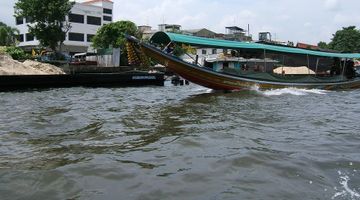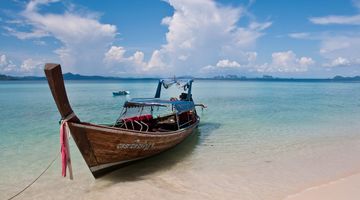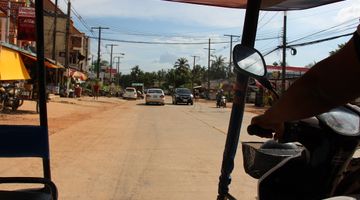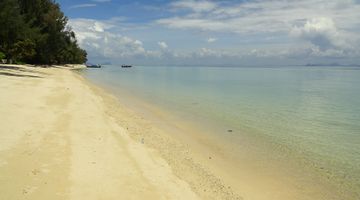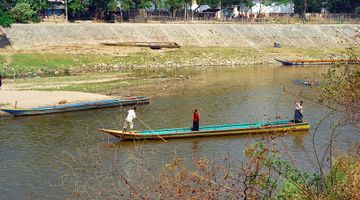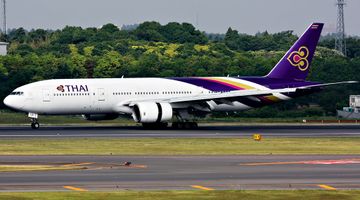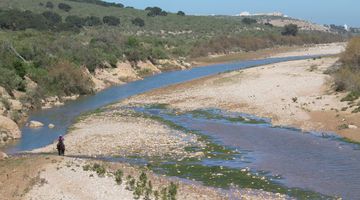Best Health Tips for Travellers on Staying Healthy in Thailand
While Thailand is an excellent travel destination and near the top of many people’s travel bucket list, it is of the utmost importance to consider the various health risk concerns prior to jumping on an aeroplane bound for paradise.
Before you travel
Fortunately Thailand is relatively safe to travel to and around, and if travellers are sensible and take the necessary precautions there is no reason why the majority of health issues and safety concerns cannot be avoided.
While it is normal for travellers to worry about contracting exotic and infectious diseases when visiting Thailand, in actual fact these are far less likely than issues such as pre-existing medical conditions. For this reason, the threats to health whilst travelling will differ between individuals and therefore each traveller will need to take into account their own personal issues; such as, their general health, duration of stay, style of travel and activities abroad.
When traveling to Thailand it is suggested that you consult with your General Practitioner a few weeks prior to departure. This will allow a medical professional the opportunity to access your specific health risks, including past medical and vaccination history, before they recommend the necessary vaccines and/or antimalarial medications.
Vaccinations you need for travelling in Thailand
Whether you are travelling to Thailand for business, for leisure or whether you are a long-term expatriate worker, vaccinations are an essential aspect of pre-travel preparation in ensuring that your health is protected from diseases and health risks while travelling around the ‘Land of Smiles’.
Check your routine childhood vaccinations
It’s important that travellers are aware of the major travel health risks, can recognise and understand the various potential dangers and that all routine childhood vaccinations are up to date. These childhood vaccinations include: Measles, Mumps, Rubella and Chickenpox; Polio; Hepatitis B (complete course); Tetanus/Diphtheria/Whooping Cough (within last five to ten years) and if over the age of 65, Shingles and Pneumonia vaccinations. It is also recommended, especially for travellers with weakened immune systems, to consider having an influenza vaccination before travelling to Thailand.
Check the status of your basic immunization for hepatitis A and typhoid
It is also essential that travellers check the status of their basic immunizations for Hepatitis A and Typhoid as these are two essential vaccinations to have up to date before traveling to Thailand. Both Hepatitis A and Typhoid are spread through consuming contaminated food or drink and as parts of Thailand struggle with sanitation, safe water and hygiene, the vaccinations are compulsory even for travellers staying in 5-star accommodation.
Prepare your Yellow fever certificate if required
There is no risk of yellow fever in Thailand but a yellow fever vaccination certificate is required by the Thai government for travellers older than 9 months of age arriving from countries with high risk of yellow fever transmission. A yellow fever certificate is also needed for travellers who have transited longer than 12 hours through an airport of a country with risk of yellow fever transmission.
Take antimalarial medication if heading to infected areas
While the majority of Thailand fortunately has low to no risk of malaria, there are other areas of the country, such as the forested and hilly areas close to the international borders that are higher risk. Although these areas are not generally visited by visitors of Thailand, on the chance that travellers are situated around these parts, it is obviously recommended that they take the prescribed antimalarial medications.
Do you need any other specific vaccinations?
Generally you do not. If you are a long-term expat in Thailand you may want to consider getting Japanese encephalitis vaccine and this one is a definite must have for your kids. In 2016, the long waited for dengue fever vaccine was released and now you can get vaccinated if you are older than 9 and under 45. The vaccine helps prevent the most severe form and is recommended for expats – especially if you have already had the dengue fever before.
Major health concerns among travellers to Thailand
Aside from prevention diseases with vaccinations, there are also other major health concerns that cannot be prevented with vaccinations and so other preventive measures need to be taken.
Most common health issues among travellers in Thaialnd
Important health issues when traveling through or around Thailand can include: unsafe food and water that can result in an upset stomach or traveler’s diarrhea; road accidents; sun burn and sun stroke; insect bites; jellyfish stings; catching a virus or the flu; and small cuts, scratches or wounds becoming infected. While the above health issues are not usually life threatening, they can still put a damper on any travel experience and therefore understanding how to prevent these concerns is paramount.
Infectious and specific local diseases
While the rabies disease is extremely rare and the chances of travellers catching the disease is exceptionally unlikely, it is still best to avoid contact with animals as rabies is a deadly viral infection of the brain transmitted to humans. There have been several cases of rabies in the southern parts of Thailand on the border with Malaysia. While canines are the primary carriers, bats, cats and monkeys are also able to transmit the disease. A pre-exposure vaccination is highly recommended for visitors who are traveling Thailand for an extended period of time, who are coming to work with animals, who are involved in extreme outdoor activities or who are likely to have high animal exposure for any reason.
There are also specific local diseases to be aware of in order to understand their symptoms as well as how to avoid them.
Dengue fever is a mosquito-borne disease that is becoming progressively problematic in Thailand, most especially in the cities. It is uncommon in travellers but dengue fever can progress to the more grave and lethal dengue haemorrhagic fever and therefore all the necessary precautions need to be taken especially as there is no vaccine against it. The only real preventive measure is to avoid getting bitten by mosquitoes. This can be done by avoiding mosquito ridden areas, wearing mosquito repellent at all times and covering up the skin with long pants and shirts wherever possible. Note that mosquitoes that transmit dengue fever have black-and-white stripped legs and bite during the daytime only.
Symptoms of dengue fever include high fever, nausea, body aches and extreme headaches most commonly behind the eyes. Some people also experience diarrheal and develop a very itchy and irritating rash. While there is no treatment aside from rest and paracetamol, it is still extremely important to contact a medical professional in the unlikely event that you are experiencing these symptoms while in Thailand or upon return.
Japanese encephalitis is another local disease that can be spread via mosquito bites and that one should be aware of when visiting Thailand. Depending on the length of stay, areas that you plan on visiting, as well as time of year, this vaccine is well worth considering especially because if contracted, there is no specific treatment.
Symptoms of the illness include headaches, convulsions, encephalitis and meningitis. The majority of sufferers have very mild symptoms but 30 percept of severe sufferers can develop permanent neurological problems and roughly 30 percept die from the disease. Preventive measures are the same as for dengue fever and travellers should do their best to avoid contact with mosquitos. Risk is higher for those who are staying in Thailand for a long time, those travelling to rural areas (especially nearby to rice paddies or mosquito breeding grounds) or for travellers who will be spending a lot of time outdoors. Although it is obviously possible for visitors to contract Japanese encephalitis, the risk is fortunately very low.
Cholera is another local disease to be mindful of and is a health risk in parts of Thailand. This disease is spread via consumption of contaminated food and water. While most people do not travel to areas in Thailand with active cholera transmissions, the cholera vaccination is recommended for those who are travelling to areas in Thailand with poor sanitation, a lack of clean drinking water or areas that have recently experienced a flood or natural disasters. Fortunately, it is also unlikely to contract the disease if one takes the basic precautions with the food and water that they consume and maintain a good standard of hygiene. While rare, symptoms can be severe and include nausea, vomiting, diarrheal and dangerous dehydration. Those who show these symptoms for longer than 24 hours may want to visit a doctor. Treatment includes antibiotics, IV fluids and rehydration.
Top 10 tips on staying healthy in Thailand
There are many things that savvy travellers can do to ensure that they stay safe and healthy when travelling in and around Thailand. Here are our top ten hints and suggestions for making the most of paradise.
-
Get travel insurance
Even for the young, fit and healthy accidents and misfortunes do occur and it is always best to err on the side of caution when going abroad. If your health insurance doesn’t cover overseas medical expenses, make sure to get travel insurance prior to take off. This will cover you in the face of illness as well as any accidents that occur as a result of outdoor activities, diving, rock climbing etc, as well as any scooter or motorcycle mishaps. Be sure to read all the fine print before your trip regarding payment of medical charges and ensure that you hang on to all medical reports, documentation and invoices for claiming purposes. -
Stock up on mosquito repellent
Due to the dangers associate with mosquito bites in Thailand it is important that travellers practice strict mosquito avoidance throughout the trip. Try and avoid mosquito breeding grounds or areas with a high mosquito population, apply and reapply a DEET-containing insect repellent on exposed skin as often as necessary, and wear clothes with long sleeves and pants. -
Stay away from stray dogs
Due to the high prevalence of street dogs as well as wild monkeys in some parts it is also best to avoid contact with animals so as to minimize the risk of contracting rabies. If rabies is left untreated it is fatal and medical advice should be sought immediately after any animal bite or even a lick from an infected animal. Pre-travel vaccination is also a good idea for those who want to be extra careful. -
Prepare your first-aid medical kit
It is also an excellent idea for travellers to carry a compact medical kit for any possible problems that may arise. Ideally the kit should contain antifungal and antibacterial creams, antiseptics, antihistamines, paracetamol and medications for any gastro issues, coughs, indigestion and fever. For tourists with pre-existing medical conditions it is advisable that all medications be packed in clearly labelled original containers as well as a signed and dated letter from your doctor explaining your medical conditions. It is also recommended to bring along double your usual dose in the event of theft or loss. -
Rent a motorbike only if you are an experienced rider
A large percentage of hospital visits for tourists in Thailand are as a result of a road accident on either a scooter or motorbike due to visitors not having adequate biking experience, faulty rental motorbikes and the sheer chaos of the road and traffic rules. Therefore it is absolutely crucial to ensure that travellers select safe modes of transportation while exploring the tropical country. It is advisable to use metered taxis for longer distances or tuk-tuks for shorter distances and to ensure that you do not get onto a rented scooter or motorbike without a valid license, helmet, as well as the necessary experience. -
Always use a sunscreen
Sun exposure is also important for travellers to be mindful of. Using a sunscreen and constantly reapplying is essential when island-hopping, snorkelling, swimming or just sight-seeing around the various cities. Covering up exposed skin with loose clothes, hats and sunglasses will also help with sunburn. Heat stroke is also fairly common for visitors of Thailand as it can take a while for people to adapt to the hot, tropical climate. The symptoms include nausea, weakness, fever, dizziness, disorientation and even collapse and loss of consciousness. -
Stay well hydratated
Another tip to avoid heat stroke is staying hydrated. Drink plenty of safe drinking water when exploring to prevent swelling of the feet and ankles, excessive sweating and muscle cramps due to strenuous activity in the heat of the day. Carry a big bottle of water with you when sightseeing or on any tours and make sure that you are sipping from it every thirty minutes. -
Consume only bottled water
While a top travel tip when in Thailand is staying hydrated, it is also crucial for travellers to only drink safe and uncontaminated drinking water. Be sure to only drink from sealed water bottles and to avoid drinking water from jugs in restaurants or street stalls. Ice blocks are another concern as it is impossible to know what water has been frozen. Complete avoidance is probably best for those who wish to avoid upset stomachs or any water-borne diseases and illnesses. -
Carry layers with you to protect from air-conditioning
Due to the extreme heat outside and the blasting artic air-con in shopping malls and buses that Thais are so fond of, can mean that tourists get sick as a result of rapid and extreme change in temperature. A way of avoiding this is to carry layers with you wherever you go, sarongs, light jackets and scarves are easy to remove and can keep one’s body warm or cool depending on the temperature. -
Do consult a doctor
Another thing to be mindful of is to consult a doctor or medical practitioner if you or any one travelling with you is running a high fever for longer than 3 days.
If you get sick or injured in Thailand, do not hesitate to consult a doctor. Thailand boasts a great network of private and public hospitals and you’ll be in good hands. For minor health concerns or issues such as food poisoning, a cough, a cold or infected cuts or abrasions, travellers should seek out the nearest pharmacy or locate a local clinic with an English speaking practitioner on duty. These clinics are generally very affordable (from THB200 for a consultation) and offer reliable healthcare and advice as do the majority of pharmacists in Thailand.
For more serious issues such as an ongoing fever, a motorbike accident, serious and relentless vomiting and other concerns that are beyond the scope of a clinician or pharmacist, travellers can opt for either a government hospital or an international hospital. While both options offer reputable and excellent healthcare, the government hospitals are generally very crowded and getting seen to can take hours and hours of waiting. Although more expensive (from THB600-1000 for a consultation), international hospitals are probably the best option in the event of a serious sickness or injury and due to medical tourism being a big business here, means that the standard of care is excellent. Be sure to triple check your travel insurance details prior to your trip so that you’re well aware of all the options available to you.























